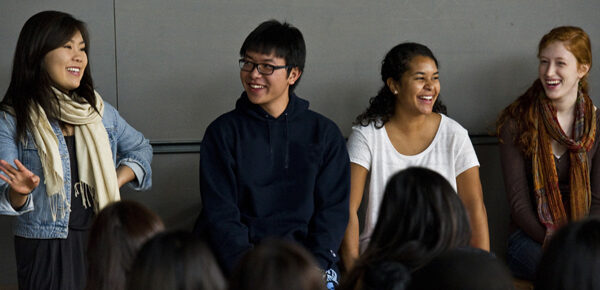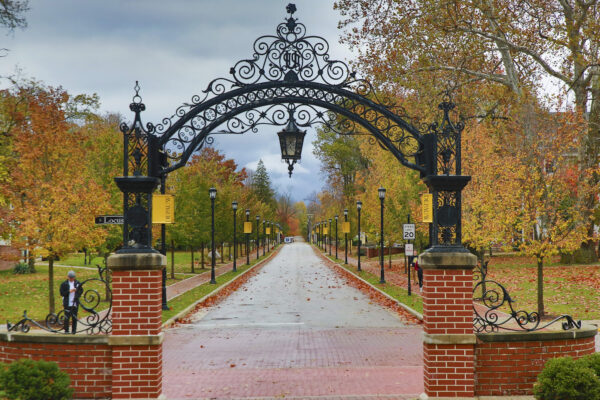By Valerie Jeremijenko
Student leadership programing in any college environment demands a multidisciplinary approach that encompasses personal development, experiential learning, theoretical modeling, and relevance to the students’ various disciplines.
When developing women’s leadership programing in the Middle East, we need to add to that considerations of the historical and cultural barriers to women’s participation in the workforce, cross-cultural and intercultural communication skills, and the possibility of international exchanges. As the assistant dean of student affairs at Virginia Commonwealth University School of the Arts in Qatar (VCUQatar), my team and I—and our counterparts on the home campus—have been experimenting with different leadership programs that can incorporate these concerns.
VCUQatar’s student demographic is currently 92.8 percent female and 61.77 percent Qatari. This reflects the country’s high participation of women in tertiary education (the ratio currently stands at 4 to 1 in favor of women) and the nation’s heavy investment in educational and leadership opportunities for Qataris. Our keystone leadership program is an annual exchange between the student leaders of our home campus in Richmond and our students in Qatar. This program relies heavily on the training and development of student affairs staff in intercultural communication.
The training of our staff is key; to date, all student affairs staff at VCUQatar are certified in both the Intercultural Development Index and the Global Competency Index and skilled at administrating the Intercultural Conflict Styles Inventory and the Intercultural Effectiveness Scale. They also participate annually in the Qatar Institute of Intercultural Communication (QIIC), a program that VCUQatar spearheaded in collaboration with other branch campuses, the Qatar Foundation, and the Intercultural Communication Institute of Portland, Oregon. QIIC features workshops in intercultural communication, social justice, gender issues, social identities, and personal leadership. It is open to the whole community with the aim of creating a culturally aware environment. Last year, more than 200 members of the Qatar Foundation community attended.
The professional development achieved through such programs infuses the support we provide to students as we prepare them for their leadership exchange, but it is the student-led sessions and the exchange experience that provide their learning. Evolving for over eight years now, the program brings in a delegation of up to 16 student leaders from the VCU home campus to the Qatar campus. The Qatar-based students plan a series of visits, interactions, and trainings that introduce the American students to Qatari culture and the many leadership challenges they face as women, Qataris, expatriates, designers, and artists. The self-reflection and research required to lead these discussions is reinforced by constant debriefing and feedback.
Two weeks later, 16 of our students visit the Richmond campus for a similar experience created by Richmond student leaders and with a focus on American leadership models. Our students visit Washington, DC, attend student senate meetings, and meet with the Student Government Association and numerous other student organizations. They also interact extensively with students from VCU’s various living learning communities, including Globe, Lead, and Aspire, which focus on world studies, leadership, and community service respectively.

The whole program culminates in VCUQatar Day, an event that features a Khaleji tent where the students offer such activities as henna, a photo booth with traditional Qatari dress options, Arabic perfume and calligraphy, a falcon, a fashion show by one of our VCUQatar alums and, of course, food. Now a much-loved campus tradition, the program draws over 2,000 VCU-Richmond students to the tent to connect with our students in their role as cultural ambassadors.
We continue to develop our student leadership exchange as new challenges and needs arise. One challenge has remained constant: the disappointing participation of Qatari women. We hope to address the barriers to our Qatari students’ participation through focus groups with Qatari alumni. Their recent inclusion in this program has been well received, and we hope that by including them as mentors we will be able to provide an even more comprehensive internationalized women’s leadership program.

If you have any questions or comments about this blog post, please contact us.


